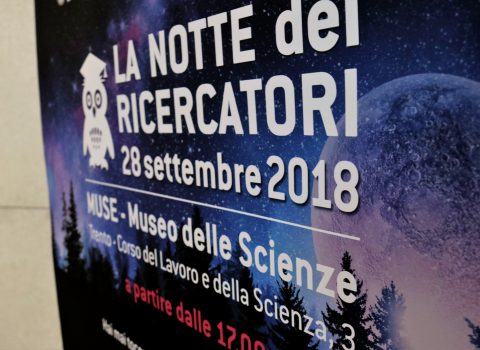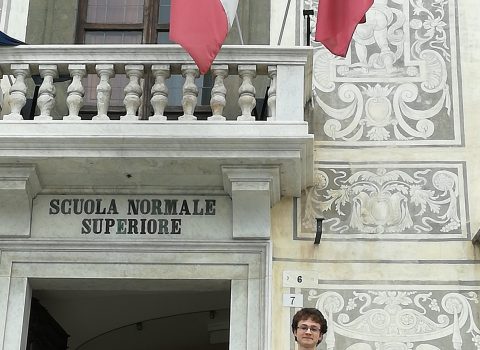
Loving winter
A parallelism between the approaching winter season and the need to learn to express and respect even the most difficult moments that life imposes on us. And to better cope with the end of summer, on 29th September the Researchers' Night returns!
September, it is known, is either loved or hated. It seems that the world divides into two more or less distinct factions: those who are invigorated by the shortening of the days, the air becoming crisper and smelling of grapes, and the usual rhythms resuming (school, work, gym classes), and those who are saddened by the same things and mourn the end of the lightest and most carefree season of the year. What can be good about it, the latter ask themselves, in the cold, dreary weather and long winter days that envelop the world in darkness and drowsiness?
Yet, for those who belong instead to the first faction, the intimate and recollected atmosphere that autumn and winter promise is comforting after the blinding summer glow that insistently asks to be celebrated, even by those who have no desire, or reason, to do so.
“Every day I hoped it would rain, because if it rained I could stay at home, hidden from the eyes of others. If it didn’t rain, I had orders from my parents to ‘stay outside in fresh air,’ and I obeyed, out of ancient submission. I used to read on a lawn. But I read without any pleasure. I could hear the crickets singing, I was deafened by the dazzling, endless peace of the summer afternoon. It seemed to promise something, something that was mysteriously meant for everyone but not for me.”
With these words, an excerpt from the longest article written by Natalia Ginzburg for the edition of the newspaper La Stampa dated 22nd August 1971, the writer described her changing relationship with summer, which as a child she cherished while later on, as she grew up, she lived with discomfort because she felt compelled to be happy on the radiant sunny days she spent in the mountains with her family.
The issue of the ” commitment to happiness,” and the flaunting of it on social media, is an important one, especially at a time in history when there are probably more people who have reasons not to be happy within the social, economic, and financial environment that has emerged over the past three years: many families, this year, have been unable to afford their summer vacations due to the price hikes that have affected virtually every sector, not least that of tourism, and are living in worry of further hikes; the pandemic, the never-ending war in Ukraine, the chilling sequence of terrible news events (feminicides, rapes, bullying, etc. ) have dug into us a series of griefs of difficult and painful gestation; the climate gone mad, the rains that have turned into monsoons, and the subverted seasons generate eco-anxiety in the most sensitive souls and concerns of immediate practicality in those who see their crops or businesses destroyed by the increasingly frequent extreme weather phenomena.
“It (summer) revives in us the ancient despair of adolescence, when we suddenly realized that we were called to be different and happy, but we were incapable of obeying such a call,” in Ginzburg’s words again.
The data speak for themselves: cases of anxiety and depression have increased significantly in recent years, and, unfortunately, the demand far exceeds the supply of psychological support treatments available through the public health care system, while private therapy has costs that most people cannot afford in the long run. In addition to the desirable increase in accessibility to public treatment, it is essential to remove the stigma not only from mental illness, but also from states of depression or simple apathy that may affect an individual throughout life.
We need to learn “The Art of Being Fragile,” as Alessandro D’Avenia’s book is titled, which aims, precisely, to put the poet Giacomo Leopardi under a different light and discard the accusations of extreme pessimism that have been addressed to him over the centuries, both when alive and dead; the same accusations that are often addressed to over-sensitive people who question the meaning of things and are told that they are the cause of their own unhappiness. “No one is unhappy except for his own fault,” Seneca wrote, but perhaps he was wrong.
Therefore, we must also recognize and give value to the outward expressions of discomfort, worry and sadness that are sometimes a cry for help and others simply an expression of a personal state – more or less momentary – that certainly requires more courage than posting a selfie from the beach bar, with a glass of wine in your hand. We must, in short, learn to love even winter and consider it as part of the seasons of life.
To make merry the transition to the cold season, the Trentino STAR system institutions, namely FBK, MUSE, FEM and Unitn are organizing on the last Friday of September the return of the Researchers’ Night, a two-yearly event that is always well attended and appreciated. It is a unique opportunity for the “non-expert” audience to peek for an evening into the world of research and the work of those who carry it out with passion and dedication. The six floors of MUSE – Museo delle Scienze will come alive with interdisciplinary desks at which researchers will be available to visitors from 5:30 p.m. to midnight on Friday, Sept. 29/09 to show demos, propose questionnaires and talk about their research topics and projects. For FBK, there will be 24 proposals of various kinds, from robotics to virtual reality, from public and gender policy to energy transition, cybersecurity, the now inescapable artificial intelligence and much more. An evening that is expected to be under the banner of curiosity and knowledge, the most important arrow in our bow against the dangerous spread of fake news and misinformation.


